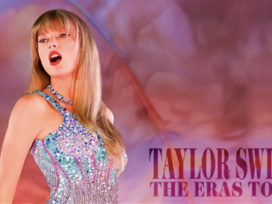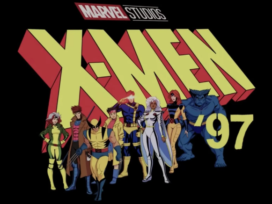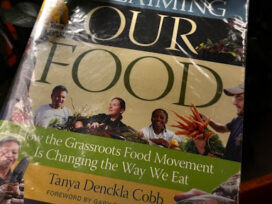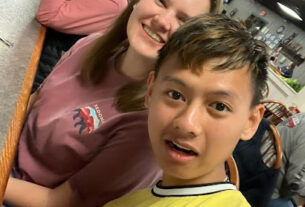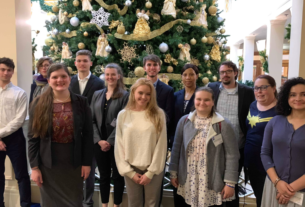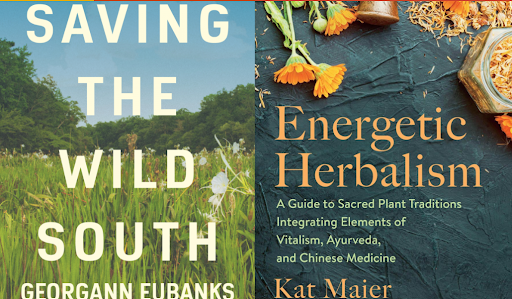
Native Plants are Important to Wildlife and Humans Alike
On March 20 from 11 a.m. to noon, both Georgann Eubanks and Kat Maier stressed the importance of preserving and using different native plants. They stressed this in not only what they said, but what they wrote. They spoke at the Virginia Festival of the Book event that took place at the Riverview Farm in Charlottesville.
First, Eubanks spoke about her book Saving the Wild South. She said, “I make a living as a writer based on my ignorance. All of the books I have done, and this is number five, have been journeys to learn something I didn’t know.” She then described her journey from North Carolina to Charlottesville for the event, mentioning how often she saw rivercane on her way up. Her book often mentions rivercane, and is also a local native species of bamboo, which she said is “ A great flood mitigator, a carbon sink, a wind break, and it is not endangered.”
She then read a passage from her book about the importance of rivercane to different species of animals and bugs that depend on it. This also included the importance of rivercane to humans. She read about canebrakes being “Reliable hunting spots for Native Americans who formed arrows, spears, blowguns, and darts from rivercane.” She also read about her personal use of the rivercane as a fishing pole, with fond memories of her grandfather in mind as she spoke.
When moderator Lilia Fuquen, asked her about how she chose the 12 plants in her book Eubanks responded with, “Well I was aiming to cover six states: North Carolina, South Carolina, Georgia, Florida, Alabama, and Tennessee… and looked for plants that had really good stories, in this case Rivercane had a personal story.”
Next, Maier began to speak about her book, Energetic Herbalism, and said, “This is my three year curriculum; it is herbal medicine, and it’s also for individuals because I really feel when we understand that we really literally are fire, wood, air, metal, we can deeply, deeply relate to our environment…” She then talked about how many of the chapters in her book go over “Chinese medicine, and describing the systems,” but the one she reads is “one of her favorite chapters”, hinting that it is slightly different from the others.
She shared an excerpt from the book saying, “Plants are the ultimate alchemists, in the land the plant calls home is part of its medicine story, this is really where the apothecary practices begins.” Then she shared how she engages with herbal medicine, through observations of not only the plants themselves, but where the plants grow, saying, “We can taste and smell the very topography of the place these plants call home…” She also went over a list of plants and their qualities that she has encountered, and why their locations make them as useful as they are.
Lastly, Maier tied people into the chapter by reading about how although people may not own land, or run a farm that has been passed down through generations like Bobby Wooding’s farm that she brings her students to yearly, they can still get in touch with nature and its locations. She read, “There is no requirement though, to own land to begin to relate to place, and where you begin to relate to place does not matter.”
For those interested in listening to the full reading, along with the question and answers portion, it is available on the Virginia Festival of the Book website at https://www.vabook.org/2022/03/20/preserving-and-using-native-plants/. Both The Wild South and Energetic Herbalism can be found online through a simple google search.

